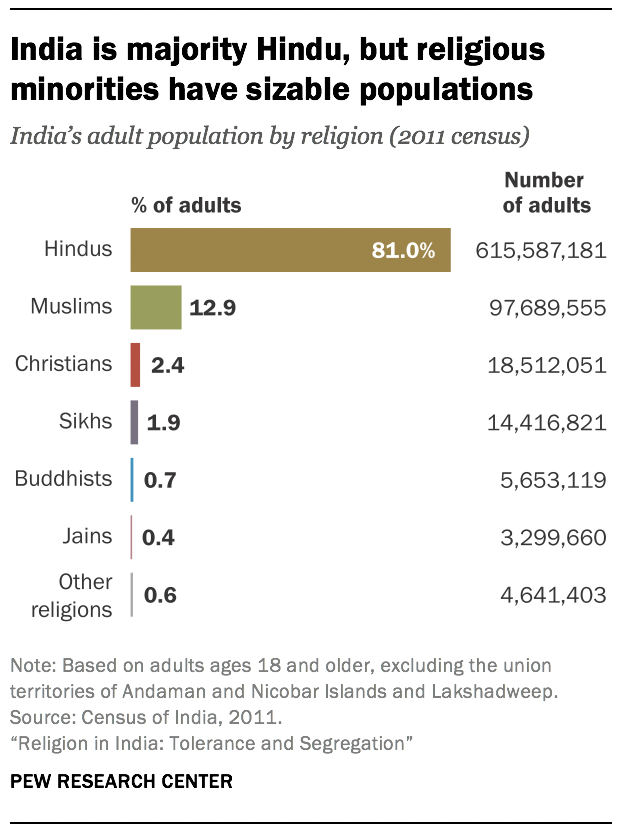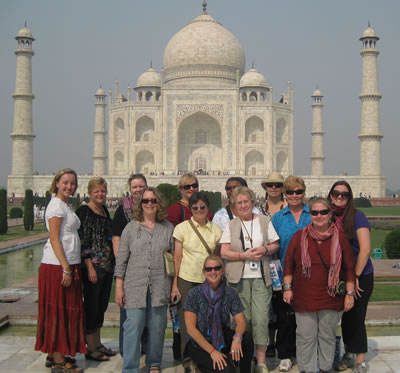
India is known for its diverse culture and traditions, which is reflected in the various religions practiced throughout the country. According to the 2011 national census, Hinduism is the largest religion in India, with approximately 79.8 percent of the population identifying as Hindus. This makes India one of the world's most Hindu-majority countries.
Islam is the second-largest religion in India, with around 14.2 percent of the population identifying as Muslims. Christianity is the third-largest religion, with about 2.3 percent of the population identifying as Christians. Other minority religions in India include Sikhs, Buddhists, Jains, and others.
Hinduism is a major influence on Indian society and culture, with many of the country's festivals, traditions, and values stemming from Hindu religious beliefs. Islam, Christianity, Sikhism, Buddhism, and Jainism also have significant followings in India, with their own customs and practices.
Religious freedom is guaranteed by the Indian constitution, which allows individuals to practice and propagate their religion freely. However, there have been instances of religious discrimination and violence in India, particularly between different religious groups.
Overall, India is a country with a rich tapestry of religions, each playing a significant role in shaping the nation's identity and culture. The coexistence of various religions in India is a testament to the country's commitment to diversity and pluralism.



